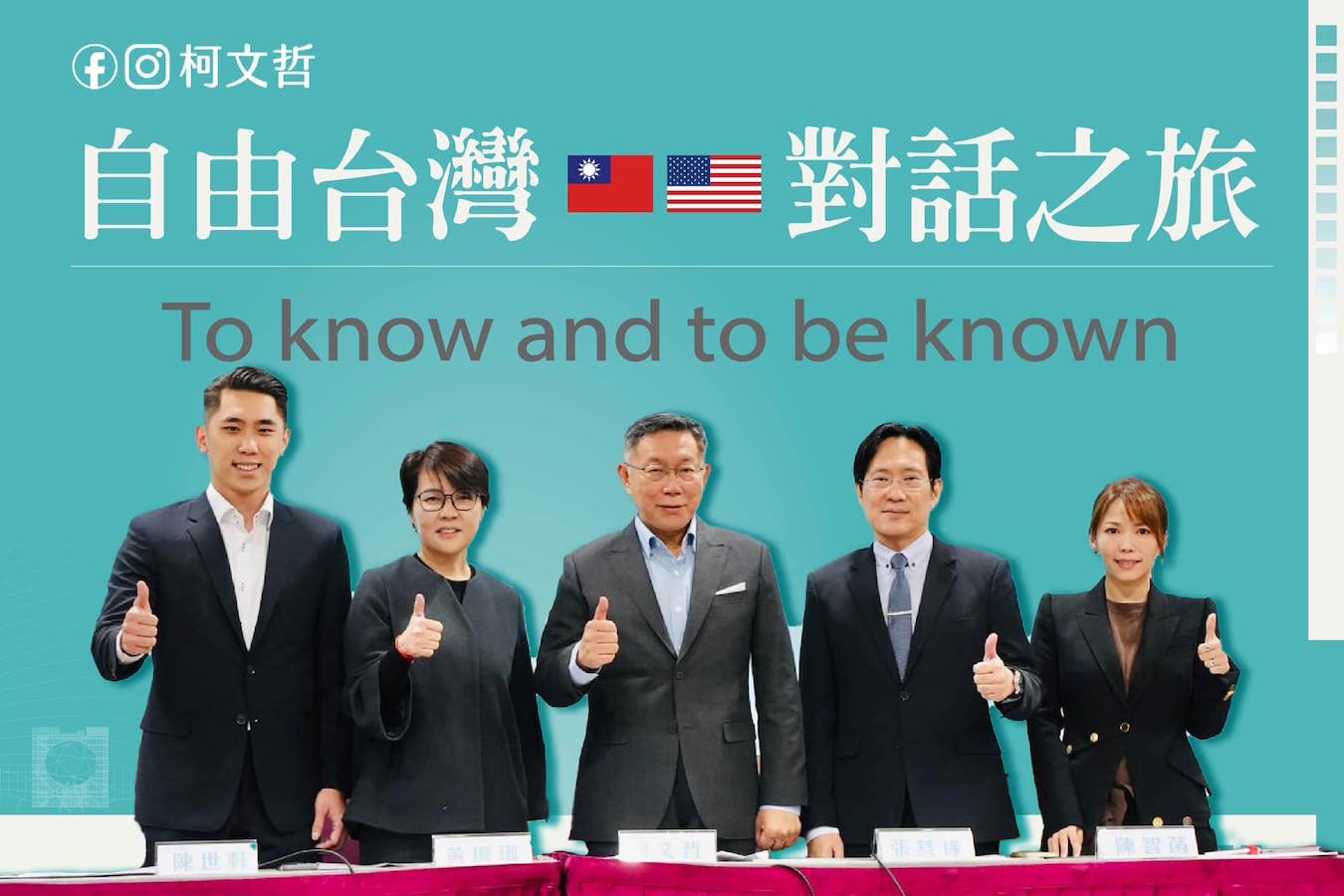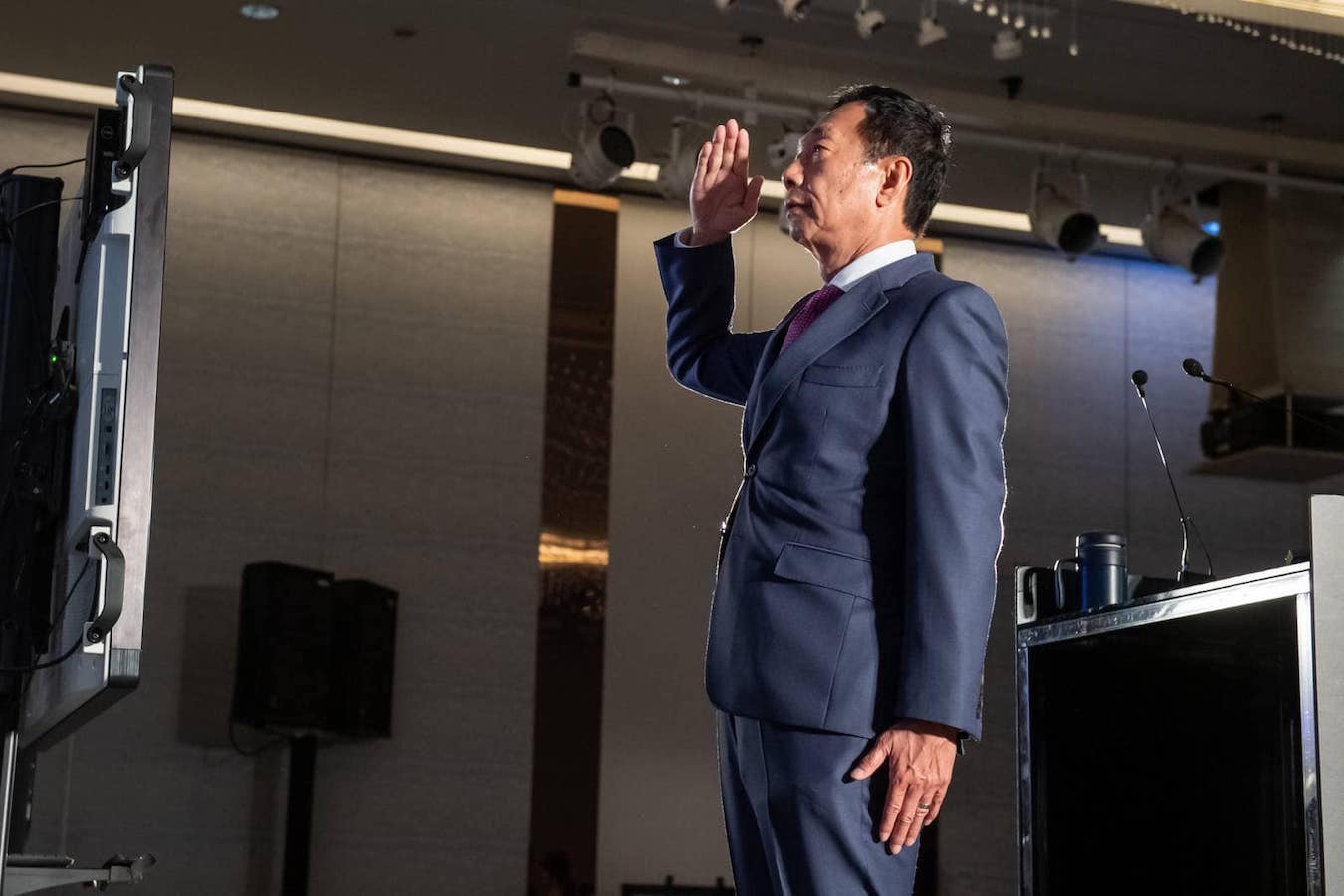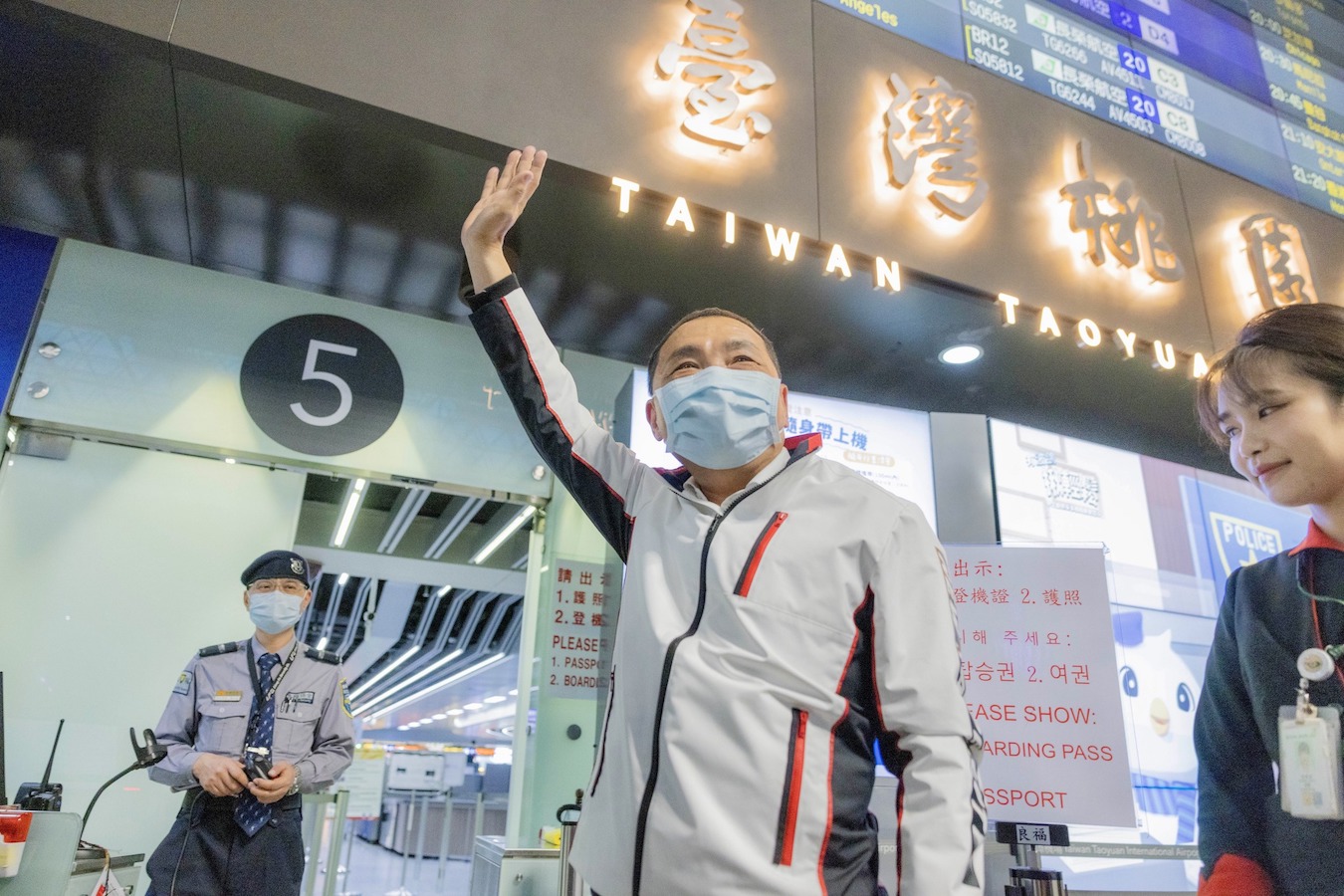by Brian Hioe
語言:
English
Photo Credit: Ko Wen-je/Facebook
AHEAD OF ELECTIONS, one notes that pan-Blue politicians are suddenly changing their tunes on cross-strait relations. This is particularly true with regard to how they articulate Taiwan’s relationship with the US. Such moves take place, however, at a time in which the pan-Blue camp’s cross-strait policy has been overshadowed by former president Ma Ying-jeou’s historic trip to China, as the first former Taiwanese leader to visit China in 70 years, in a similar timeframe to stopovers in the US by current president Tsai Ing-wen in which she met with US Speaker of the House Kevin McCarthy.
For one, former Taipei mayor Ko Wen-je of the TPP recently visited the US. As part of his visit, Ko met with the American Institute in Taiwan (AIT), the US’s representative institution in Taiwan in the absence of formal diplomatic visits, three times.
 Ko Wen-je (center). Photo credit: Ko Wen-je/Facebook
Ko Wen-je (center). Photo credit: Ko Wen-je/Facebook
Although Ko was to keep quiet about the presence of national security officials during these meetings, Ko instead loudly touted them to the media. Ko has been mocked for an incident in which aides sought to remind him that he was not to discuss the details of his meetings publicly. Despite this warning, Ko has continued to discuss his meetings anyway to the media, amidst reports that he was having difficulty filling up his itinerary in DC. Ko also met with Hsiao Bi-khim, Taiwan’s representative to the US.
Most notably, during his visit Ko made comments at a talk hosted at the Center for Strategic and International Studies stating that Taiwan should “prepare for war,” while maintaining space for dialogue with China. Ko is likely hoping to present himself as less pro-China, given his history of conducting annual city-based cross-strait exchanges between Taipei and Shanghai in which he ritualistically repeated the claim that both sides of the Taiwan Straits are “One family with a common destiny.” Ko, too, drew fire in the past for comments suggesting that the outlying island of Kinmen should build a bridge with China, another starkly pro-unification view. Strangely, Ko later posted on Twitter that in meetings with US government officials, he had urged the US to assist Taiwan to join the China-led RCEP trade agreement.
One has seen similar attempts to dial back pro-China views with FoxConn founder Terry Gou, who is angling for the KMT presidential nomination. Gou visited the US around the same time as Tsai’s visit, then later visited Japan. The Japan visit occurs despite the historic antagonism of the pan-Blue camp with Japan, though Japan could be a possible ally against China in the event of an invasion. Gou, too, seems to be trying to walk back his pro-China image–recent remarks by Gou suggest that Taiwan should not be so economically reliant on Taiwan.
 Terry Gou. Photo credit: Terry Gou/Facebook
Terry Gou. Photo credit: Terry Gou/Facebook
These prove strange remarks for Gou, who is more or less the iconic taishang entrepreneur, as an individual whose wealth is built on factories in China and who was formerly Taiwan’s richest man. It is to be seen whether the electorate accepts Gou’s comments as honest, though Gou previously played up links to the US in his previous presidential bid, playing up his friendship with then-US president Donald Trump.
It is possible that attempts at moderation on pro-China stances ahead of elections will meet with pushback from other elements of the pan-Blue camp. Ma was strident during his trip to China, with comments emphasizing his view that Taiwanese are Chinese. Ma’s comments unsurprisingly provoked outrage among the pan-Green camp, but where the pan-Blue camp is concerned, he continues to exert significant influence in the party, as its last successful presidential candidate.
Ma or deep Blues in the party may try to push the party toward a harder pro-China line on cross-strait issues. Indeed, as a recent rally in front of the KMT party headquarters by party members calling on former Kaohsiung mayor Han Kuo-yu to run for president again shows, the deep Blue camp is alive and well. As younger members of the party have become increasingly critical of the existing establishment as they field legislative primary challenges, one expects older party members to lean into criticisms of younger members as pan-Green turncoats, which too could have the effect of pushing the party toward the deep Blue end of the political spectrum. This would prove a means by which older party members seeking to win local elections with short-term aims ends up having a detrimental effect on the long-term viability of the party overall.
 Hou You-yi at the Taoyuan International Airport. Photo credit: Hou You-yi/Facebook
Hou You-yi at the Taoyuan International Airport. Photo credit: Hou You-yi/Facebook
In the meantime, New Taipei mayor Hou You-yi visited Singapore as part of a bid to burnish foreign policy credentials. Hou has made more commentary on cross-strait stances as of late, but seems to have not come up with any formula on cross-strait stances that yet sticks. It is expected that Hou will continue with efforts to come up with a winning cross-strait formula.
Nevertheless, it is not only the pan-Blue camp that is walking back past stances. DPP presidential candidate William Lai commented at a memorial service for pro-independence advocate Koo Kwang-ming that Taiwan and China could have a brotherly relationship and co-exist. Lai was clearly aiming to signal moderation to the US and China with these comments, along the lines of past comments by Lai in 2017 that it was possible to “Love Taiwan while being fond of China”, though gesturing toward continuity with previous pro-independence statements. Members of both camps, then, are hoping to revise past statements to conform with a pro-status quo position–with pan-Blues as Ko or Gou seeking to come off as more moderate on pro-China stances, while Lai seeks to dial back past pro-independence views.

